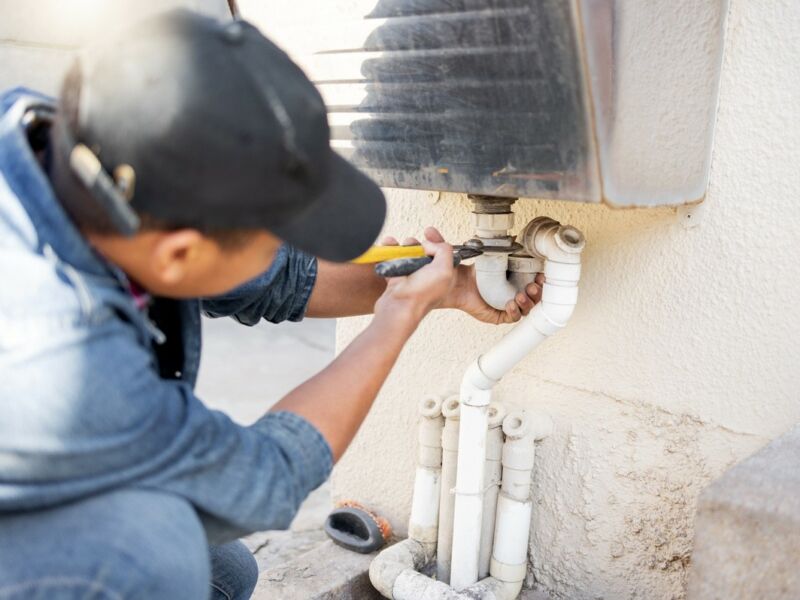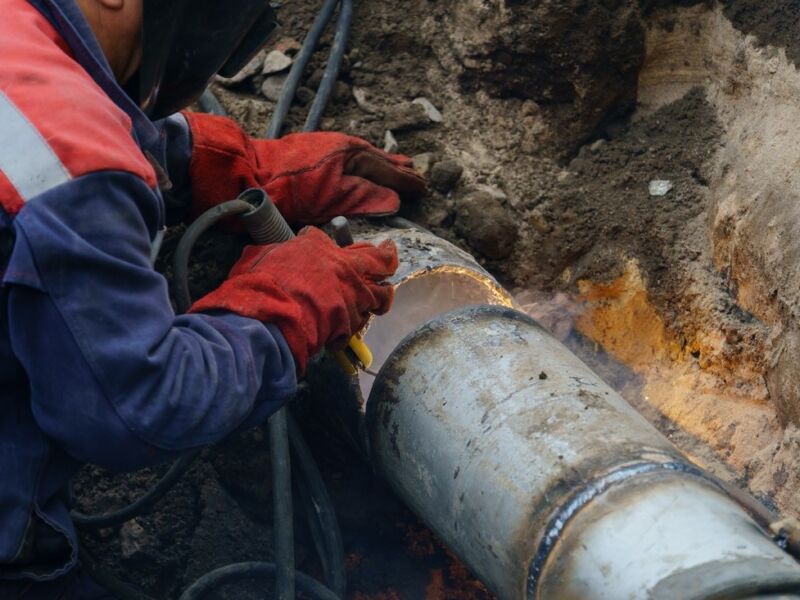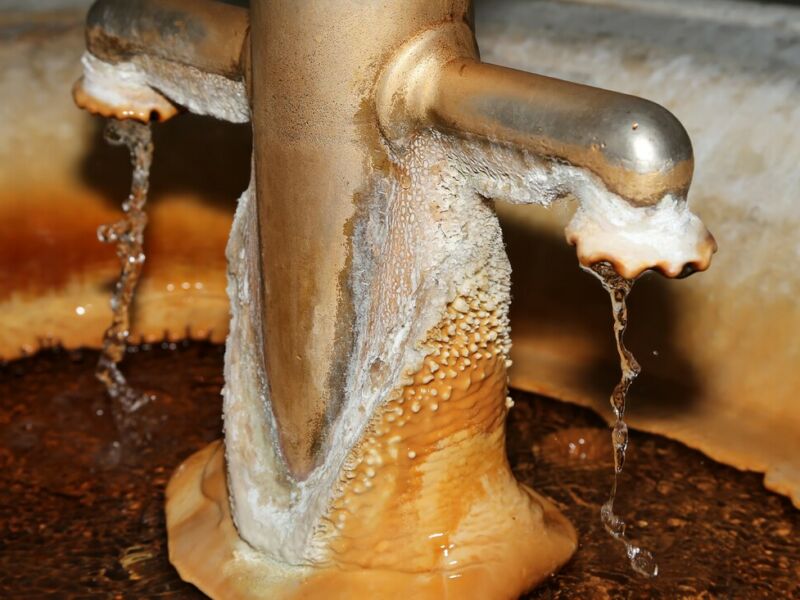
The Impact of Water Leaks on Structural Integrity
Water leaks can cause significant damage to the structural integrity of buildings. When water seeps into the foundation or walls, it can weaken the materials and compromise the stability of the entire structure. The longer the leak goes undetected, the more damage it can cause, leading to costly repairs and potential safety hazards.
1. Damage to Foundation

Water leaks can penetrate the foundation, especially in basements or crawl spaces. Over time, the water can erode the concrete, resulting in cracks and weakening the foundation. This can lead to sloping floors, sagging walls, and even structural collapse in severe cases.
2. Weakening of Structural Materials
Water leaks can also damage the wooden structures, such as beams and joists, in buildings. Excessive moisture can lead to rot and decay, compromising the stability of the framework. This can affect the load-bearing capacity of the building and pose a serious safety risk.
3. Mold and Mildew Growth
Water leaks create a damp environment that is conducive to mold and mildew growth. These microorganisms can thrive on various surfaces, including walls, ceilings, and insulation. Aside from causing unpleasant odors and deterioration of materials, mold and mildew can also pose health risks to the occupants of the building.

4. Electrical Hazards
Water leaks can come into contact with electrical wiring and components, creating a hazardous situation. Water and electricity do not mix, and the presence of water can increase the risk of electrical shock or short circuits. This can potentially lead to fires and further damage to the building.
Preventing Water Leaks and Structural Damage
1. Regular Inspections
Regular inspections of plumbing systems, roofs, and foundations can help detect early signs of water leaks. Timely identification of leaks and addressing them promptly can prevent further damage to the structure.
2. Proper Maintenance
Maintaining plumbing systems, including pipes, fittings, and fixtures, can prevent leaks from occurring. Regularly checking for loose connections, corroded pipes, and worn-out seals can help identify potential issues before they escalate.
3. Waterproofing
Applying waterproof coatings to basements, foundations, and roofs can provide an extra layer of protection against water leaks. Waterproofing materials and techniques can help redirect water away from the building, reducing the risk of leaks.
4. Adequate Drainage
Ensuring proper drainage around the building can prevent water from pooling near the foundation. This can be achieved by installing adequate gutters, downspouts, and grading the landscape away from the structure to divert water flow.
5. Insulation
Proper insulation can help prevent condensation and moisture buildup, reducing the chances of water leaks. Insulating pipes, walls, and roofs can also help maintain a consistent temperature, minimizing the risk of frozen pipes that can burst and cause water damage.
Conclusion
Preventing structural damage from water leaks is crucial for maintaining the longevity and safety of a building. Regular inspections, proper maintenance, and implementing preventive measures can help mitigate the risk of water leaks and their impact on the structural integrity. If you suspect a water leak, it is important to address it promptly to prevent further damage. Contact a professional plumbing service, like JGW Group Water Damage Restoration Las Vegas, for fast and professional pipe repair to avoid structural damage. For more information, visit https://jgwgroupwaterdamagerestoration.com/nevada/las-vegas.
According to recent studies, 75% of U.S. homeowners have experienced a water leak at some point. Water leaks can cause significant structural damage to buildings if not addressed promptly. This article will explore the various angles of preventing structural damage from water leaks, covering topics such as the impact of water leaks on structural integrity, preventing water leaks and structural damage, and important facts and statistics about broken pipes.
The Impact of Water Leaks on Structural Integrity
Water leaks can have serious consequences for the structural integrity of buildings. Here are some key points to consider:
1. Damage to Foundation
Water leaks can erode the foundation, leading to cracks and potential collapse. This can result in sloping floors, sagging walls, and compromised stability.
2. Weakening of Structural Materials
Excessive moisture from water leaks can cause wooden structures to rot and decay, compromising the stability of the building’s framework.
3. Mold and Mildew Growth
Water leaks create a damp environment ideal for mold and mildew growth. Besides causing material deterioration, mold and mildew can also pose health risks to occupants.
4. Electrical Hazards
Water leaks can come into contact with electrical wiring, increasing the risk of electrical shock or short circuits. This can lead to fires and further damage to the building.
Preventing Water Leaks and Structural Damage
Taking proactive measures can help prevent water leaks and consequent structural damage. Here are a few preventive strategies:
1. Regular Inspections
Regularly inspecting plumbing systems, roofs, and foundations can proactively identify potential leaks, allowing for prompt repairs.
2. Proper Maintenance
Maintaining plumbing systems and addressing any signs of damage, such as corroded pipes or loose connections, can prevent leaks from occurring.
3. Waterproofing
Applying waterproof coatings to basements, foundations, and roofs provides an extra layer of protection against water leaks.
4. Adequate Drainage
Ensuring proper drainage around the building, such as installing gutters and downspouts, redirects water away from the foundation, reducing the risk of leaks.
5. Insulation
Proper insulation helps prevent condensation and moisture buildup, reducing the chances of water leaks. Insulating pipes, walls, and roofs also helps prevent frozen pipes that can burst.
Important Facts and Statistics about Broken Pipes
To further illustrate the significance of preventing water leaks, here are some important facts and statistics to consider:
– Recently, an emergency water main repair was completed in Brooklyn after the property owner discovered their lead water main, highlighting the risk of water contamination in damaged pipes.
– Broken water pipes can have various implications, from small leaks to significant structural damage in plumbing systems.
– Clogged drains and pipes can lead to plumbing malfunctions, causing disruptions for businesses and individuals.
– Environmental stressors like earthquakes can cause severe pipe damage along geological fault lines.
– Filing an insurance claim for a broken pipe may not always be beneficial.
– Damage to pipes can affect the functioning of other fixtures, such as faucets and pressure valves.
Frequently Asked Questions (FAQ)
What should I do if I find a broken or burst pipe?
1. Turn off the water supply.
2. Cut the electricity to the affected area.
3. Remove valuables from the room.
4. Call a professional plumber.
5. Contact your insurance company to report the incident.
Are broken pipes covered by insurance?
Remember, preventing structural damage from water leaks requires proactive measures such as regular inspections, proper maintenance, and implementing preventive strategies. In the event of a broken pipe, it is crucial to contact a professional plumbing service like JGW Group Water Damage Restoration Las Vegas at 725-240-0640 for fast and reliable pipe repair. For more information, visit https://jgwgroupwaterdamagerestoration.com/nevada/las-vegas.



